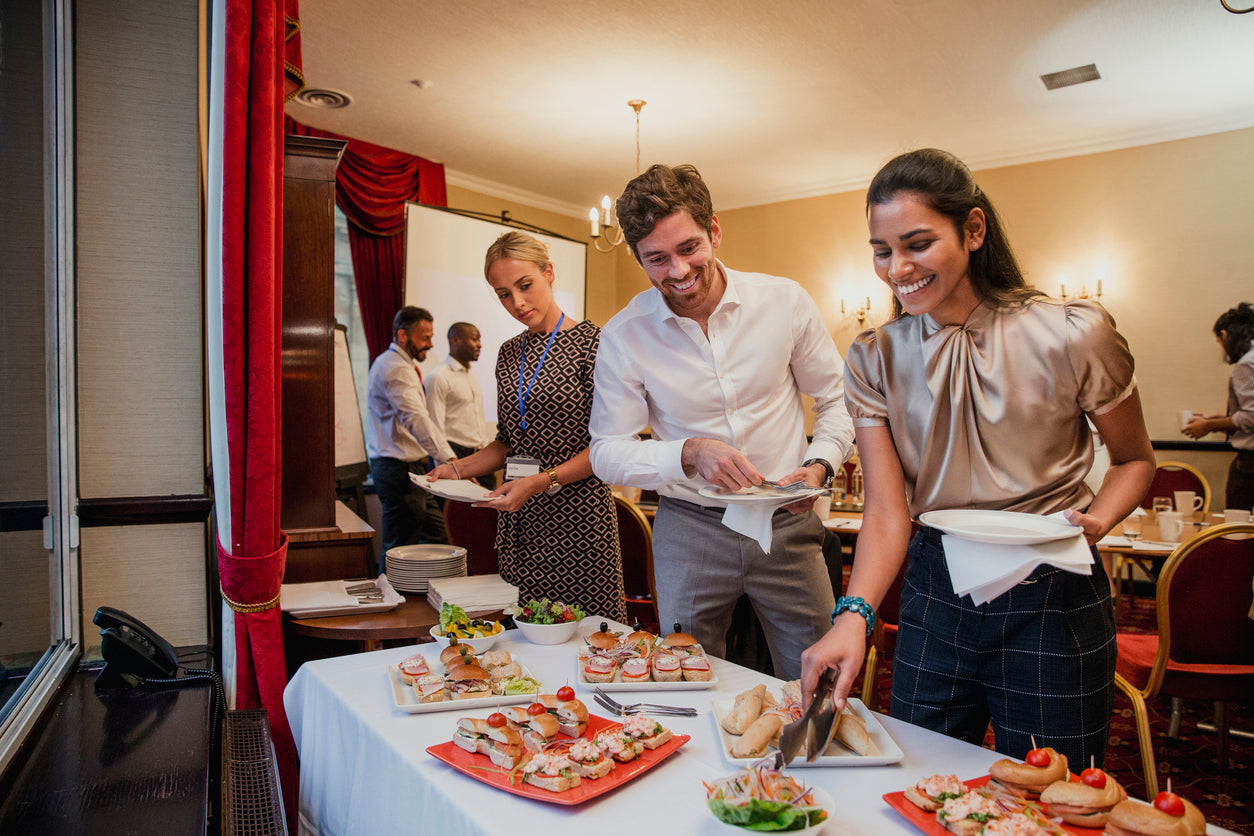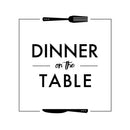
Stronger Teams, One Meal at a Time: The Power of Shared Food at Work
We often say that food brings people together. But did you know that it’s just as true in the office as it is around the family dinner table?
Today's fast-paced working world is nothing new. But hybrid, remote and hyper-flexible working models are new. And these can come at the expense of genuine connection among colleagues. Back-to-back meetings, inbox overload, excessive screen time and the pressure to keep up can all chip away at the human side of our work lives.
But what if the secret to better teamwork, clearer communication, and a healthier workplace culture was as simple as… lunch?
At Dinner on the Table, we’ve seen how the act of sharing food can transform teams. Not just through the warm glow of a full stomach, but through the bonds that form when people gather — informally, authentically, and with purpose.
Here’s why shared meals in the workplace matter more than we might think — and why every organisation should consider making them a regular part of their team culture.
1. Food Builds Relationships That Emails Can’t
In a world that thrives on Slack threads and Zoom links, it’s easy to forget the value of face-to-face connection. Yet research shows that informal interactions — the ones that happen outside structured meetings — are essential for trust, collaboration, and creativity.
And few things spark informal interaction like food.
Whether it’s a team lunch, a birthday morning tea, or an end-of-week grazing board, sharing a meal creates an environment where people let their guard down. Hierarchies soften. Conversations wander away from work. People stop being job titles and start being, well, people.
We’ve watched managers and junior staff share jokes over mini quiches. We've seen departments that rarely speak find common ground over a roast vegetable salad. These aren’t just feel-good moments — they’re the foundation of a more connected, collaborative workplace.
Because here’s the truth: teams who trust each other work better together. And trust isn’t built in a boardroom — it’s built in everyday moments. Like chatting over lunch.
2. Meals Create Mental Breathing Space — and That Boosts Performance
In many workplaces, the lunch break is becoming optional. Crumb laden keyboards from meals eaten at desks are the norm. Lunch is squeezed between tasks, or skipped altogether in favour of powering through. The result? Tired brains, reduced focus, and rising burnout.
But when teams are encouraged to stop, sit, and eat together — even just once a week — something powerful happens. People recharge. Not just physically, but mentally.
A shared meal offers what psychologists call a "soft boundary": a natural pause that signals it's time to reset. When staff eat together, they’re more likely to take a real break — to switch off from task lists and enjoy human company. This reduces stress, supports cognitive recovery, and actually improves productivity when people return to work.
In fact, studies show that employees who take proper breaks — especially social ones — report higher job satisfaction, better concentration, and greater overall wellbeing.
From a leadership perspective, encouraging lunch breaks has little to do with being nice. It’s smart. A catered lunch or snack platter can deliver ROI in morale, engagement, and even retention. When people feel seen, valued, and cared for, they stick around — and they do their best work.
3. Food Is Culture-Building in Action
If you want to know what a workplace really values, don’t just read their policies — look at how they treat people day to day. And shared meals? They’re a tangible way to live out the values of inclusion, respect, and community.
Food is a universal language. Offering it says, You matter. You belong. We’re in this together.
This is especially important in diverse workplaces. Shared meals create space for cultural exchange, celebration, inclusion and communication. Think of a Diwali morning tea, a Ramadan Iftar meal, or a Lunar New Year lunch — small acts of hospitality that have an outsized impact on belonging. They offer team members an opportunity to share something of themselves with their colleagues. And who doesn't have something to learn when it comes to cultural education?
But it doesn’t have to be tied to a calendar. Regular catered lunches, birthday celebrations, and team snacks all serve to reinforce your culture. They create rhythms that people look forward to, rituals that build identity, and experiences that say: this isn’t just a workplace, it’s a community.
At Dinner on the Table, we work with dozens of organisations who say the same thing: when they started prioritising food as part of their team culture, they saw a shift. More laughter. More collaboration. Fewer silos. Stronger teams.
And the best part? It doesn’t have to be fancy. Just thoughtful.
The Bottom Line
In the age of KPIs and quarterly reports, it’s easy to forget the small, human things that keep teams ticking. But the truth is: connection is productivity. Trust is performance. Culture is strategy.
And sometimes, the most effective way to build all three… is with a meal.
So if you're a leader looking to improve collaboration, morale, or just give your team something to smile about — don’t overlook the power of food. It’s more than just a perk. It’s a strategy for healthier, happier, more effective teams.
We’d love to help you make it happen. Whether it’s a one-off event or regular team lunches, Dinner on the Table can bring your people together — with meals made from scratch, delivered with care, and served with heart.
Because when people eat together, they work better together.
And that’s good for everyone.
Other articles:
Quick links
Home Home Delivery Meals How it works Meal Delivery Info Contact us Blog Search About us Privacy policy Karen Will Cater
Contact us
About us
We exist to care for you through really good food. Whether it's your weeknight family meal, your big life celebrations or your large corporate events, we'd love to cook for you.
And together, we can change the daily lives of families living with disability. Find out about our social mission here.
